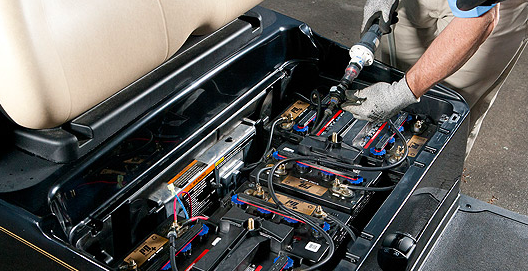Perhaps the environmental issue that has generated as much equivocation is the pollution caused by batteries and used batteries.
It is part of a fact, that is the presence of hazardous materials in the composition of these products, which are distributed in ecosystems when it discards them in a way that is not appropriate.
The issue entered the public agenda from claims of social movements worldwide highlighted the lack of public policies for reliable disposal of them. A search on Google for water pollution and batteries yields more than 600,000 results, much more than other pollutants increased risk to health (by affecting larger volumes of water for consumption), such as nitrates and arsenic.
There are countless environmental insults that are comparable to batteries , but batteries have a feature that enables individual action behaviors skyrocket, and allowing blame the victim.
Thanks to media pressure, sometimes interesada- million users feel responsible for the batteriesthat have to rule with regular trash because they do not offer them a better alternative. This surreptitious advertising has allowed to divert attention from the real culprits of this pollution .
A suggestive aspect of the current economy is the strategy of many international companies to shorten the useful life of the products they offer, to sell the same product several times. Mobile electricity (ie, the batteries and batteries ) is one of the most emblematic areas in which this strategy is developed.
Circulating information is so confusing that a website of the Ministry of Environment of the Nation said in Buenos Aires and Greater Buenos Aires “common and alkaline batteries can be disposed of with regular garbage , ” while the Environmental Protection Agency City says exactly the opposite: “should not be disposed of with waste household”.
There are many teachers who fell into the trap and put his students to collect used batteries. But a battery is hazardous waste. It can only be manipulated by qualified personnel, never children.And a school is the worst place imaginable to accumulate waste hazardous.
Those who are better able to treat the batteries are those industrial facilities to make them. Only public awareness of this fact will advance management responses including those most responsible.
Public policies are needed oblige companies that sell to take charge of batteries for destruction under controlled conditions. Applying the principle of extended producer responsibility does not mean (as is done now) enable reception a few points to publish a photograph in the media. Sort by law means that at each point of sale of batteries received those used and that companies take charge of all logistics costs and treatment of these wastes hazardous.
To analyze the implications of the issue and possible responses have published a report on environmental management and old batteries under the Environmental Observatory of the Ombudsman of the City of Buenos Aires, which is my charge batteries. Alejandro Love, Ombudsman of the City warns: ” It is not possible to conquer a healthy environment for our neighbors if the waste hazardous discarded in the City , as the batteries usadas- lack a sustainable treatment. The local state is in debt on pollutant sources. This first report of the Environmental Monitoring and initiatives it promotes are a first step aiming to settle a debt affecting the environmental rights of everyone sl @ s @ s neigh of our city. ”
On the functions of the Observatory, said Barbara Rossen, Undersecretary of Urban Rights, Public Space and Environment of the Ombudsman: “Our Environmental Observatory will act as a forum for information production and analysis, develop adequate and timely information on urban environmental issues identifying priority and emerging issues through research and consultative processes, and to encourage dialogue between social partners, companies installed in the jurisdiction, the State and civil society “.
My report on “Environmental Management batteries and batteries used”. You can download it for free from the website of the Ombudsman or this link:https://www.dropbox.com/s/8dkt1ksxltpk4p8/Gesti%C3%B3n%20ambiental%20de%20Pilas%20y%20Baterias.pdf?dl=0
If the link seems not work, copy it , paste it on the top of your browser (Google or using) and give enter. It may take a while to open up or down depending on the status of the Internet connection.
The image taken by environmental groups to demand that companies take responsibility for thepollution they generate. Dolls are emblematic of several companies that manufacture batteries, which already tired of having to face unaccountable corporations, claiming that that does pay.











